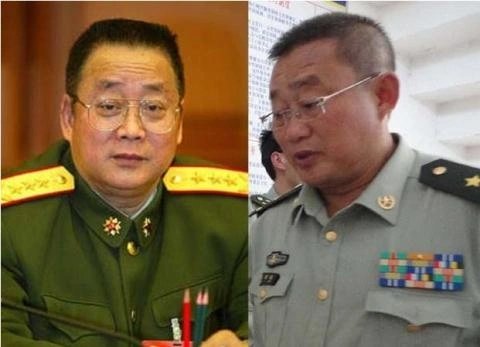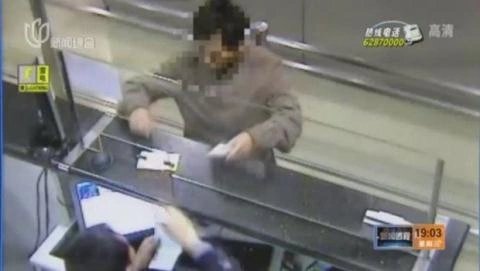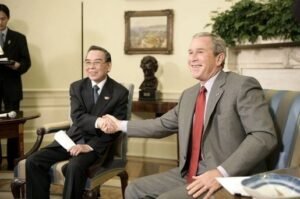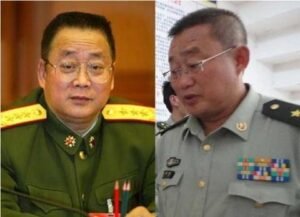
New developments against Chinese corruption: `Catching the dragon` 5
China did not sign an agreement to extradite criminals but used `squads` to `Hunt Foxes`, although not publicly, but operated more cautiously than before.
On September 25, the Chinese-language Ming Jing newspaper said that the second strong anti-corruption wave in the Chinese Army was being deployed quietly, and the reason why he did not raise his voice to strike hard or take drastic action could be due to his arrangement.
Because of this, access to information from anti-corruption cases has been extremely limited.
The Chinese newspaper reported that on the afternoon of May 25, information appeared in the Chinese online community suspected of a `dragon` (senior general) about to fall from his horse, source from a person named Thai.
Many people believe that this `dragon` in the army is Lieu Tich Long, former member of the Central Military Commission and retired Minister of General Logistics of the Chinese Army.
On May 28, Hong Kong’s South China Morning Post quoted a source from the Chinese Army as saying that the Chinese Army’s anti-corruption discipline inspection agency had arrested Mr. Lieu Tich Long’s younger brother on suspicion of
Lieutenant General Lieu Tich Long and his younger brother – Major General Lieu Tich Tuan.
Investigation officers suddenly inspected 3 residences of Lieu Xijun in Guiyang city, Guizhou province, and in total collected about 37 million yuan in cash and other items such as gold…
The media at that time said that when Lieu Tichjun was arrested, the anti-corruption network began to close in on Senior General Lieu Tich Long.
There are also articles revealing that Mr. Lieu Tich Long’s situation may be `dangerous`.
Another example shows that China’s `Fox Hunt` campaign in the US is particularly effective, but the information is not as loud as before.
Accordingly, People’s Daily said: `High technology has brought strength to the Fox Hunting Campaign` because sophisticated facial recognition technology and big data helped authorities recognize Xie Renliang.
Xie Renliang – a character who escaped 15 years ago, after defrauding investors and a state securities agency of 91 million Yuan (18.7 million USD).
Meanwhile, AFR Weekend reported very differently, saying that Zhang was not hiding in Australia but seemed to have returned to China and lived for most of the past 15 years.
This information makes it clear that Zhang’s arrest was not necessarily thanks to high technology, but rather to the basic skills of the police.

Zhang Jianping was discovered at the Airport.
Although the team was not too large, the `Fox Hunting` squad was able to escort more than 850 people who fled back to the country.
China uses `squads` and does not sign an extradition agreement
Also because China does not have criminal extradition agreements with a number of countries, Beijing’s corruption arrest squad operating on the territory of other countries has created sensitive obstacles.
For a long time, Canada, Australia and the United States have been considered the top destinations for corrupt Chinese officials to launder money and hide, but China has no extradition agreements with these countries.
Chinese Premier Li Keqiang’s recent trip to Canada was overshadowed by a little-publicized but extremely sensitive issue for both countries.
Washington recently even warned Beijing about Chinese spies operating secretly on US soil in a campaign to hunt down fugitive corrupt officials.
Beijing media said that their undercover agents `persuaded` the fugitives to return home to face charges, but Australia and the US opposed this approach.
China, on the other hand, criticized the US for its uncooperative attitude and said that the US was becoming a paradise for Chinese criminals. Mr. Liu Dong – Deputy Director of the Economic Crime Prevention Agency of the Chinese Ministry of Public Security is
According to Que Chi
Vietnamese land



